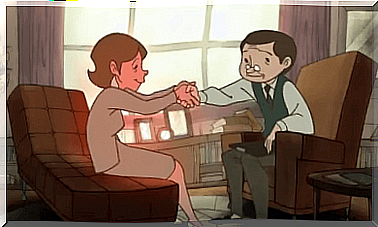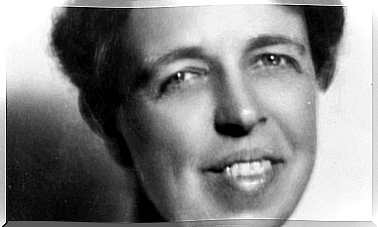3 Escape Routes That Feed Anxiety

The human mind reacts in different ways to high impact negative experiences. He can get stuck, start to set up a series of worrying thoughts, or in some cases create an escape route to escape this painful reality. The problem is that this escape, in the majority of cases, does not dispel the anxiety. Quite the contrary. It only reinforces it, especially if it is based on expectations and assumptions.
Human beings sometimes perceive situations as dangerous when they are not. This happens because he associates them with vivid experiences from the past, even if these have nothing to do with the present. Like when we are afraid of everyone because some people have been cruel and abusive to us in the past.
It is true that the mind creates these escape routes to protect itself and control anxiety. We are going to introduce you to three that, instead of calming anxiety, end up increasing it.
1. Imagine a threatening future
If we face a threatening situation, in general we analyze it, confront it and overcome it as much as possible. However, when negative experiences from the past gravitate around our life, we may not be able to act reasonably.
Instead of identifying and accepting the threat, we often look for escape routes. One of them is to imagine a horrible future. Let’s take an example. We have lost our jobs and are in debt. The most reasonable would be to look for a new job, committing fully to this process, and perhaps renegotiate all these debts with the bank.
However, if someone has had a traumatic experience in the past, an experience linked to exclusion or unemployment, they might act differently. This person will be able to let themselves be overcome by anxiety and spend their time imagining a terrifying future. She will imagine herself begging in the streets or in prison. Therefore, she does not assume what she has in front of her. The escape routes will not help him solve his problem.

2. Compare yourself to ideal models, another escape route
We are sometimes very good at making ourselves feel guilty. And it is not uncommon that anguish pushes us to take one of these escape routes linked to the martyr. Instead of analyzing how we can fix a mistake or learn a lesson from it, we start beating ourselves up by thinking about everything we could have done and haven’t done. Or to all that we could be and are not.
One of the avenues of escape from anxiety is to compare ourselves to ideal models. And we will inevitably come out the losers. It is the result of past experiences that have struck us emotionally, especially situations of rejection or punishment for not doing “the right thing” at a given time. They are therefore reflected in the present, like an inordinate anguish in the face of any of our mistakes or flaws.
3. Go back to the past to relive situations that are no longer there
Another of the avenues of escape from anguish takes us back to the past. It happens when we are faced with a frustrating or painful situation that we cannot come to terms with. The most common is that it happens when we experience emotional loss, either through death or a relationship that has ended. We feel a lot of anxiety and try to dispel it by going back over and over to those memories of the past.
This way of acting does not dispel the anxiety of the situation either. We may feel a little better as we look back on these past situations, but sooner or later we will have to go back to the present and feel that angst again. Having to endure all this involves a great deal of emotional wear and tear. We don’t even think that working to come to terms with what happened could save us energy: we keep going back in time.

As we see, it is very important that we work to deal with our traumatic experiences from the past. These can never be forgotten, even if we can relegate them or suppress them. They will always be there, on the lookout for our present. It is therefore essential to face these negative situations, to work on them, to succeed in getting rid of them. If we don’t, they turn into anguish and then into flight paths that feed off that anxiety.










